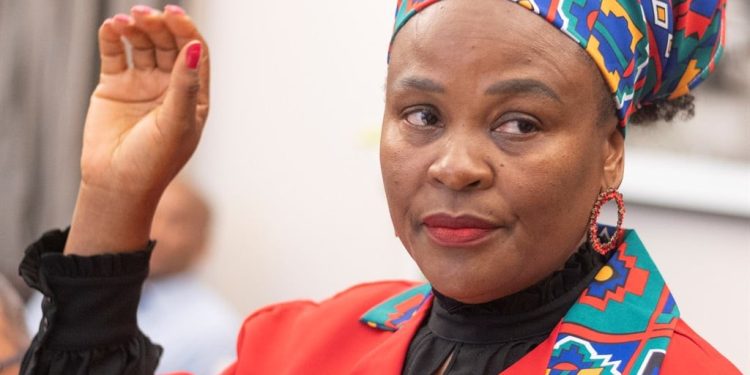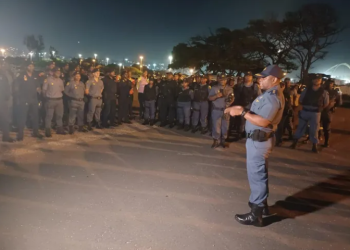Former Public Protector Busisiwe Mkhwebane has become the center of a firestorm after a controversial statement called for her to “suffer everywhere she goes” and “to the grave.” The inflammatory remarks have drawn widespread condemnation from across South Africa’s political spectrum and civil society.
The statement, which appears to be unaligned with any political party, has nevertheless attracted significant backlash amid ongoing tensions over Mkhwebane’s controversial tenure and removal from office.
The Economic Freedom Fighters (EFF), often vocal in political debates, swiftly distanced itself from the remarks. EFF spokesperson Vuyani Pambo reiterated the party’s commitment to nonviolence and respect for human dignity. “We categorically reject any form of violence or harm against anyone, regardless of their political views,” Pambo stated. “We must resolve our differences through the rule of law, not hate-filled rhetoric.”
Mkhwebane’s time as Public Protector remains deeply divisive. While her tenure was marred by legal setbacks and sharp criticism, particularly from those who viewed her as politically biased, she also garnered support for taking bold stances against alleged corruption.
The statement calling for harm against her has been met with near-universal condemnation. Many political figures and organizations have emphasized the importance of maintaining civility, even amid heated disagreements. Legal experts have warned that such rhetoric could incite violence and carry serious legal consequences for those responsible.
“This kind of language is not only dangerous but undermines the democratic principles of engagement and respect,” said legal analyst Professor Thembeka Gwala. “Public discourse must remain focused on accountability and justice, not personal attacks or threats.”
As the nation processes the fallout from Mkhwebane’s removal, calls for unity and constructive dialogue have grown louder. Political leaders and citizens alike are urging a shift away from harmful rhetoric and toward fostering a climate where differing views can coexist without fear of retribution or violence.
For South Africa, the incident serves as a reminder of the need to prioritize respect and human rights in its political and social discourse.






















